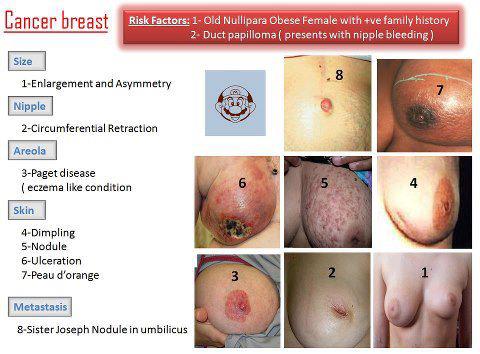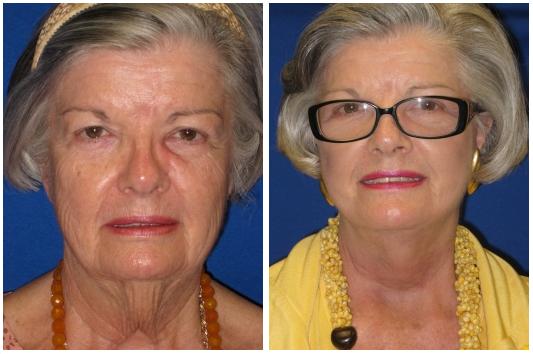Breast milk may spread viruses that cause breast cancer
Breast milk and HPV
We all know that faulty genetics is partially responsible for breast cancer in a family. But faulty genetics is not the sole risk factor for breast cancer that spreads from a mother to her daughter(s).
Studies suggest that viruses that cause or increase risk of breast cancer can spread from one generation to another through breast milk.
Dr. W.K. Glenn and colleagues published a study in BMC Research Notes that had found high risk human papillomavirus and Epstein Barr virus in human breast milk and babies drinking the virus-loaded milk may contract the cancer-causing viruses.
The authors reported that multiple viruses including human immunodeficiency virus (HIV), Epstein Barr virus (EBV) and mouse mammary tumour virus have already been identified in human milk and high risk human papillomavirus (HPV) sequences have already been identified in breast cancer tissue.
Apparently, baby girls who drink milk from their infected mothers may get infected with the viruses. But the current study has found these viruses may also be present in human milk from normal lactating women who had no history of breast cancer.
The researchers found high risk HPV in 15% of milk samples from normal lactating Australian women. Four samples were sequenced and HPV 16 was found in three samples and HPV 18 was found in one sample. Epstein Barr virus was detected in 33% of breast milk samples.
The researchers concluded "The presence of high risk HPV and EBV in human milk suggests the possibility of milk transmission of these viruses. However, given the rarity of viral associated malignancies in young people, it is possible but unlikely, that such transmission is associated with breast or other cancers."
Although HPV was found in non-cancerous tissue, HPV was also found in breast cancer tissue, suggesting that these viruses may play a role in the development of certain cases of breast cancer.
By David Liu, PHD @foodconsumer.org
We all know that faulty genetics is partially responsible for breast cancer in a family. But faulty genetics is not the sole risk factor for breast cancer that spreads from a mother to her daughter(s).
Studies suggest that viruses that cause or increase risk of breast cancer can spread from one generation to another through breast milk.
Dr. W.K. Glenn and colleagues published a study in BMC Research Notes that had found high risk human papillomavirus and Epstein Barr virus in human breast milk and babies drinking the virus-loaded milk may contract the cancer-causing viruses.
The authors reported that multiple viruses including human immunodeficiency virus (HIV), Epstein Barr virus (EBV) and mouse mammary tumour virus have already been identified in human milk and high risk human papillomavirus (HPV) sequences have already been identified in breast cancer tissue.
Apparently, baby girls who drink milk from their infected mothers may get infected with the viruses. But the current study has found these viruses may also be present in human milk from normal lactating women who had no history of breast cancer.
The researchers found high risk HPV in 15% of milk samples from normal lactating Australian women. Four samples were sequenced and HPV 16 was found in three samples and HPV 18 was found in one sample. Epstein Barr virus was detected in 33% of breast milk samples.
The researchers concluded "The presence of high risk HPV and EBV in human milk suggests the possibility of milk transmission of these viruses. However, given the rarity of viral associated malignancies in young people, it is possible but unlikely, that such transmission is associated with breast or other cancers."
Although HPV was found in non-cancerous tissue, HPV was also found in breast cancer tissue, suggesting that these viruses may play a role in the development of certain cases of breast cancer.
By David Liu, PHD @foodconsumer.org




Ehhh... I'll wait for additional studies to be done on this first.
ReplyDeletethat sounds scary. hopefully they'll be able to do more research and realize this isn't true. seems like there are still more benefits to nursing than not.
ReplyDeletehttp://spinning-threads.blogspot.com
It is recommended not to give a call to the tech support agent when you are full of anger as any failure on their part could worsen the situation dropping you in more irritating situation. Techwitty
ReplyDeleteThis combination helps to prepare graduates to transfer relevant, useful skills into the workforce. http://www.docshifter.com
ReplyDeleteThis creates a platform where open discussions can be held that serve both to critique and contribute to the creating of cutting edge technology. Alphabay
ReplyDeleteSo whenever you face a pc related problem whether it is day or night or at any moment of time you can get the online help here The Best in Tech .
ReplyDeletethere are significant advantages to exploiting the online tech support, especially in such cases when a person just has to get through minor problems or want to fine tune the computer network.http://www.techwarn.com/remove-riskware-ifeohijack-2-easy-steps-ultimate-guide/
ReplyDelete